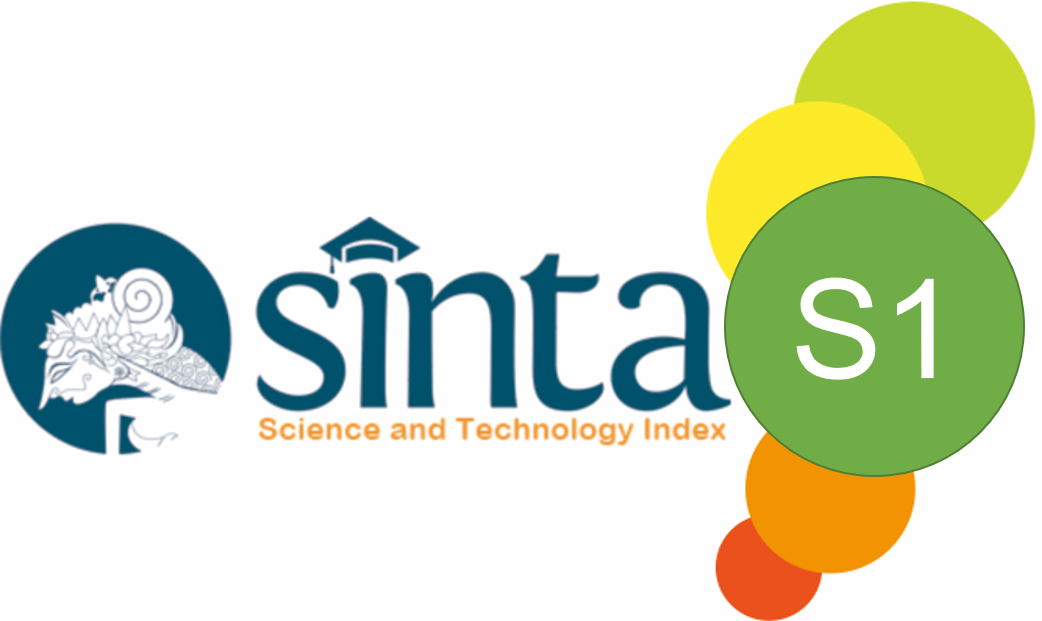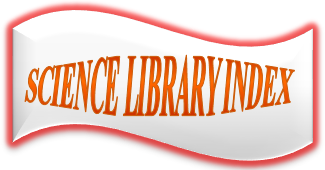Justification of Design Parameters for Efficient Operation of Submersible Pumps to Support Sustainable Development Goals (SDGs)
Abstract
This study seeks to justify design parameters that enhance the efficient operation of submersible pumps in support of Sustainable Development Goals (SDGs), especially SDG number 6, 7, and 9. Laboratory experiments and flow-path modeling were combined to assess water quality, suspended solids, and energy loss in pipelines. Pump performance under varying conditions was evaluated, including wear impacts on seals and thrust bearings, using vibration diagnostics. Bypass regulation improved efficiency and reduced required head, while valve throttling increased energy loss and caused overheating at low flow. Friction loss rose due to pipe scaling and corrosion. The study shows that performance degradation occurs because of mismatches between hydraulic resistance and impeller load, and insufficient cooling under sediment-rich conditions. The findings offer guidelines for intelligent pump control and predictive maintenance. These improvements are crucial for optimizing water resource infrastructure, reducing energy consumption, and ensuring sustainable irrigation and drainage in line with global development goals.
Keywords
Full Text:
PDFReferences
Kotenko, A., Herman, V., and Kotenko, A. (2014). Rationalization of Ukrainian industrial enterprises in the context of using torque flow pumps on the basis of valuation of the life cycle of pumping equipment. Nauka i Studia, 16(126), 83–91.
Rylnikova, M., and Knyazkin, E. (2020). Substantiation of parameters of the energy-efficient water outflow scheme of underground mine using energy of hydro-flows. E3S Web of Conferences, 192, 03004.
Molina, D.A.B., Restrepo, R.R., Forero, J.E.D., and Toscano, A.D.R. (2021). Computational analysis of different turbulence models in a vane pump simulation. Indonesian Journal of Science and Technology, 6(1), 159-182.
Glovatskii, O., Kalimbetov, B., Ergashev, R., Kholbutaev, B., Pardaev, M., Ergasheva, G., Nasirova, N., and Khimmataliev, D.O. (2025). Modernization of Submersible Pump Designs for Sustainable Irrigation: A Bibliometric and Experimental Contribution to Sustainable Development Goals (SDGs). Indonesian Journal of Science and Technology, 10(3), 427-438.
Ergashev, R.R., Ergasheva, G.S., Bekchanov, F.A., Kayumova, D.N., Teshaboeva, F.R., Dilova, N.G., and Karimov, R.R. (2025). Assessment of the condition of pump units based on vibration diagnostic indicators supported by artificial intelligence (AI) and completed with bibliometric literature review. ASEAN Journal of Science and Engineering, 5(3), 495-520.
Bhosale, S.K. (2022). Development of a solar-powered submersible pump system without the use of batteries in agriculture. Indonesian Journal of Educational Research and Technology, 2(1), 57-64.
Irawan, A.K., Rusdiana, D., Setiawan, W., Purnama, W., Fauzi, R.M., Fauzi, S.A., Alfani, A.H.F., and Arfiyogo, M.R. (2021). Design-construction of a solar cell energy water pump as a clean water source for people in Sirnajaya village, Gununghalu district. ASEAN Journal of Science and Engineering Education, 1(1), 15-20.
Mrini, M., Senhaji, F., and Pimentel, D. (2001). Energy analysis of sugarcane production in Morocco. Environment, Development and Sustainability, 3(2), 109–126.
Aydin, H., and Merey, S. (2021). Design of electrical submersible pump system in geothermal wells: A case study from West Anatolia, Turkey. Energy, 230, 120891.
Shuiguang, T., Hang, Z., Huiqin, L., Yue, Y., Jinfu, L., and Feiyun, C. (2020). Multi-objective optimization of multistage centrifugal pump based on surrogate model. Journal of Fluids Engineering, 142(1), 011101.
Ramez, A., Al-Hakimi, W., Perozo, N., and Jaeger, P. (2023). Real-time liquid rate and water cut prediction from the electrical submersible pump sensors data using machine-learning algorithms. ACS Omega, 8(14), 12671–12692.
Calisir, S. (2007). The evaluation of performance and energy usage in submersible deep well irrigation pumping plants. Agricultural Mechanization in Asia, Africa, and Latin America, 38(1), 9–17.
Han, C., Liu, J., Yang, Y., and Chen, X. (2023). Influence of blade exit angle on the performance and internal flow pattern of a high-speed electric submersible pump. Water, 15, 2774.
Yong, H., Ling, B., Danyang, D., Weidong, S., and Ling, Z. (2023). Effects of tip clearance on energy performance of three-stage electrical submersible pump. Geoenergy Science and Engineering, 226, 211696.
Nasyrova, N., Glovatsky, O., Ergashev, R., Rashidov, J., and Kholbutaev, B. (2021). Design aspects of operation of water supply facilities of pumping stations. E3S Web of Conferences, 274, 03008.
Maitelli, C. P., Bezerra, F., and Mata, W. (2010). Simulation of flow in a centrifugal pump of espresso systems using computational fluid dynamics. Brazilian Journal of Petroleum and Gas, 4(1), 1–7.
Al-Hejjaj, M. A., Sadeq, D. J., and Al-Fatlawi, O. (2023). A review of the electrical submersible pump development chronology. Iraqi Journal of Chemical and Petroleum Engineering, 24(2), 123–135.
Bing, H., Tan, L., Cao, S., and Lu, L. (2012). Prediction method of impeller performance and analysis of loss mechanism for mixed-flow pump. Science China Technological Sciences, 55(7), 1988–1998.
Glovatskii, O., Ergashev, R., Nasirova, N., Rashidov, J., and Kholbutaev, B. (2023). Experimental tests of submersible vane pumps. E3S Web of Conferences, 401, 05065.
Urishev, B., Eshev, S., Nosirov, F. J., and Kuvatov, U. (2021). A device for reducing the siltation of the front chamber of the pumping station in irrigation systems. E3S Web of Conferences, 274, 03001.
Zhu, J., and Zhang, H. Q. (2016). Mechanistic modeling and numerical simulation of in-situ gas void fraction inside ESP impeller. Journal of Natural Gas Science and Engineering, 36, 144–154.
Thin, K. C., Khaing, M. M., and Aye, K. M. (2008). Design and performance analysis of centrifugal pump. World Academy of Science, Engineering and Technology, 46, 422–429.
Glovatskii, O., Usmanov, S., Ergashev, R., Hamdamov, B., and Gazaryan, A. (2023). Hydrometric flow measurement in water management. E3S Web of Conferences, 365, 03016.
Glovatskii, O., Dzhurabekov, A., Sadiev, U., Rustamov, Sh., Rashidov, J., and Saparov, A. (2023). Improving the efficiency of irrigation pumps. AIP Conference Proceedings, 2612, 020030.
Glovatskii, O., Azizov, O., Bekchanov, F., Gazaryan, A., Shomayramov, M., and Ismailov, N. (2020). Diagnostic tests of vertical pumps modernized pump stations. IOP Conference Series: Materials Science and Engineering, 883(1), 012032.
Abduh, A., Achmad, S.F., Syam, C., Samad, S., Arham, M., Mustafa, M., and Pandang, A. (2026). Dataset on the number of schools, teachers, and students in Sulawesi, Indonesia: kindergarten, primary, junior, senior high, vocational, and Islamic boarding schools with educational access, quality, and cultural implications to solve challenges and strategies in education management and support Sustainable Development Goals (SDGs). ASEAN Journal of Educational Research and Technology, 4(1), 89-116.
Al-Obaidi, A.S.M. (2026). The Journal of Engineering, Science and Technology (JESTEC): A bibliometric insight into materials research trends and innovation to support Sustainable Development Goals (SDGs). ASEAN Journal for Science and Engineering in Materials, 5(1), 101-122.
Apriliani, A., Waahyudin, C., Ramdani, F.T., Martin, A.Y., Syahrudin, D., Hernawan, D., and Salbiah, E. (2026). Techno-economic analysis of sawdust-based trash cans and their contribution to Indonesia’s green tourism policy and the Sustainable Development Goals (SDGs). ASEAN Journal for Science and Engineering in Materials, 5(1), 17-36.
Awalussillmi, I., Febriyana, K.R., Padilah, N., and Saadah, N.A. (2023). Efforts to improve sustainable development goals (SDGs) through education on diversification of food using infographic: Animal and vegetable protein. ASEAN Journal of Agricultural and Food Engineering, 2(2), 113-120.
Basnur, J., Putra, M.F.F., Jayusman, S.V.A., and Zulhilmi, Z. (2024). Sustainable packaging: Bioplastics as a low-carbon future step for the sustainable development goals (SDGs). ASEAN Journal for Science and Engineering in Materials, 3(1), 51-58.
Di, R., Sawangboon, T., and Chano, J. (2025). Enhancing innovative thinking through a theory-based instructional model in design education to support Sustainable Development Goals (SDGs). ASEAN Journal of Educational Research and Technology, 4(3), 311-332.
Haq, M.R.I., Nurhaliza, D.V., Rahmat, L.N., and Ruchiat, R.N.A. (2024). The influence of environmentally friendly packaging on consumer interest in implementing zero waste in the food industry to meet sustainable development goals (SDGs) needs. ASEAN Journal of Economic and Economic Education, 3(2), 111-116.
Henny, H., Budi, A.H.S., Andriyansyah, M., Ar Rozzak, M.R., Baru, M.M., and Masek, A. (2025). Hazard identification, risk assessment, and determining control (HIRADC) for workplace safety in manufacturing industry: A risk-control framework complete with bibliometric literature review analysis to support sustainable development goals (SDGs). ASEAN Journal for Science and Engineering in Materials, 4(2), 267-284.
Imaniyati, N., Ratnasari, C.D., and Adman, A. (2025). Enhancing job satisfaction through human resource information systems and communication: A commitment-based approach to achieve Sustainable Development Goals (SDGs) in education-oriented organizations. ASEAN Journal of Educational Research and Technology, 4(2), 237-254.
Keisyafa, A., Sunarya, D.N., Aghniya, S.M., and Maula, S.P. (2024). Analysis of student’s awareness of sustainable diet in reducing carbon footprint to support Sustainable Development Goals (SDGs) 2030. ASEAN Journal of Agricultural and Food Engineering, 3(1), 67-74.
Khamdamovna, K.S. (2025). Enhancing professional readiness in vocational education through an integrative approach aligned with the Sustainable Development Goals (SDGs). ASEAN Journal for Science Education, 4(2), 143-154
Makinde, S.O., Ajani, Y.A., and Abdulrahman, M.R. (2024). Smart learning as transformative impact of technology: A paradigm for accomplishing sustainable development goals (SDGs) in education. Indonesian Journal of Educational Research and Technology, 4(3), 213-224.
Maryanti, R., Rahayu, N. I., Muktiarni, M., Al Husaeni, D. F., Hufad, A., Sunardi, S., and Nandiyanto, A. B. D. (2022). Sustainable development goals (SDGs) in science education: Definition, literature review, and bibliometric analysis. Journal of Engineering Science and Technology, 17(6), 161-181.
Maulana, I., Asran, M.A., and Ash-Habi, R.M. (2023). Implementation of Sustainable Development Goals (SDGs) no. 12: Responsible production and consumption by optimizing lemon commodities and community empowerment to reduce household waste. ASEAN Journal of Community Service and Education, 2(2), 141-146.
Nurjamin, A., Nurjamin, L.R., Fajriah, Y.N., Nurjamin, A.K., and Firdaus, H.A. (2026). Integrating generative artificial intelligence (AI)-based multimodal learning in education to enhance literacy aligned with Sustainable Development Goals (SDGs). ASEAN Journal of Educational Research and Technology, 4(1), 71-88.
Nurnabila, A.T., Basnur, J., Rismayani, R., Ramadhani, S., and Zulhilmi, Z. (2023). Analysis of the application of Mediterranean diet patterns on sustainability to support the achievement of Sustainable Development Goals (SDGs): Zero hunger, good health and well beings, responsible consumption, and production. ASEAN Journal of Agricultural and Food Engineering, 2(2), 105-112.
Ragadhita, R., Nandiyanto, A.B.D., Farobie, O., Kurniawan, T., and Bilad, M.R. (2026). Definition and role of sustainable materials in reaching global Sustainable Development Goals (SDGs) completed with bibliometric analysis. ASEAN Journal for Science and Engineering in Materials, 5(1), 53-100.
Rahmah, F.A., Nurlaela, N., Anugrah, R., and Putri, Y.A.R. (2024). Safe food treatment technology: The key to realizing the Sustainable Development Goals (SDGs) zero hunger and optimal health. ASEAN Journal of Agricultural and Food Engineering, 3(1), 57-66.
Sesrita, A., Adri, H.T., Suherman, I., Rasmitadila, R., and Fanani, M.Z. (2025). Production of wet organic waste ecoenzymes as an alternative solution for environmental conservation supporting sustainable development goals (SDGs): A techno-economic and bibliometric analysis. ASEAN Journal for Science and Engineering in Materials, 4(2), 245-266.
Syahrudin, D., Roestamy, M., Fauziah, R.S.P., Rahmawati, R., Pratidina, G., Purnamasari, I., Muhtar, S., and Salbiah, E. (2026). Techno-economic analysis of production ecobrick from plastic waste to support sustainable development goals (SDGs). ASEAN Journal for Science and Engineering in Materials, 5(1), 9-16.
Wiyanarti, E., and Nurjannah, A.N. (2026). Influence of self-efficacy on affective learning outcomes in social studies education toward achieving Sustainable Development Goals (SDGs). ASEAN Journal of Educational Research and Technology, 4(1), 1-18.
Ximenes, S.M. (2025). School feeding program and Sustainable Development Goals (SDGs) in education: Linking food security to learning outcomes in Timor-Leste. ASEAN Journal for Science Education, 4(2), 155-168.
Xing, G., Chano, J., Thadanatthaphak, Y., and Wu, C.C. (2025). Physical adaptation of college students in high-altitude training: Empirical findings and curriculum development insights to support Sustainable Development Goals (SDGs). ASEAN Journal of Educational Research and Technology, 4(2), 215-236.
Yu, X., Chano, J., and Wongsaphan, M. (2026). Enhancing occupational identity and self-efficacy through a self-education model in art and design education aligned with Sustainable Development Goals (SDGs). ASEAN Journal of Educational Research and Technology, 4(1), 19-46.
DOI: https://doi.org/10.17509/ijost.v11i3.90251
Refbacks
- There are currently no refbacks.
Copyright (c) 2025 Universitas Pendidikan Indonesia

This work is licensed under a Creative Commons Attribution-ShareAlike 4.0 International License.
Indonesian Journal of Science and Technology is published by UPI.
View My Stats




















